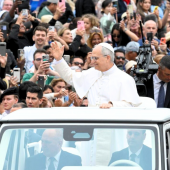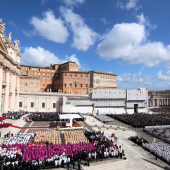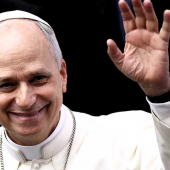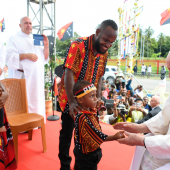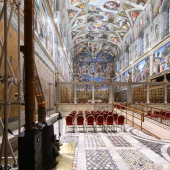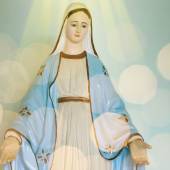Conclave: A Battle Between Conservative, Moderate, or Progressive?
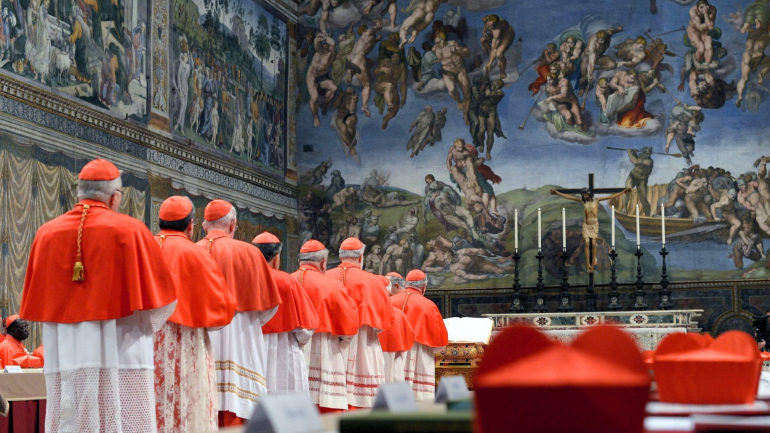
As the Catholic Church prepares for a pivotal moment in its modern history, the upcoming conclave set for May 7 has drawn global attention.
With 133 cardinal electors gathering in the Sistine Chapel, the world watches closely: Who will be the successor to Pope Francis?
This conclave is more than a mere leadership decision—it is a mirror of the Church’s soul, identity, and direction in the 21st century.
While the Church defies political binaries, Vatican watchers and global media—including TG1 Rai, Italy’s leading national broadcaster, and respected Catholic outlets like La Croix International, The Pillar, and America Magazine—commonly frame the papabile in terms of three general currents: Conservative, Moderate, and Progressive.
These are not factions in the political sense but represent pastoral styles, theological emphases, and differing visions for renewal or continuity in the Church.
The Conservative Current: Guardians of Tradition
Among the prominent conservative voices is Cardinal Gerhard Ludwig Müller (Germany), former Prefect of the Dicastery for the Doctrine of the Faith.
As profiled by TG1 Rai, Müller is known as a "forte custode della dottrina tradizionale"—a strong guardian of tradition—critical of theological ambiguity and certain reforms introduced during Pope Francis’s pontificate, particularly in matters of family and synodality.
Another key figure is Cardinal Robert Sarah (Guinea), a deeply spiritual and liturgically rooted voice. His writings call for a return to silence, reverence, and fidelity to the Church’s magisterium.
For many conservatives, figures like Müller and Sarah represent continuity and doctrinal clarity in an era marked by rapid cultural and ecclesial change.
Conservative cardinals tend to be cautious about innovations. They prioritize faithfulness over flexibility, believing the strength of the Church lies in its unchanging truths rather than contemporary adaptation.
The Moderate Path: Builders of Bridges
In the center are moderates who seek balance between tradition and pastoral responsiveness. Cardinal Matteo Zuppi, Archbishop of Bologna and President of the Italian Bishops’ Conference, is widely seen as a frontrunner.
As TG1 Rai notes, Zuppi is “vicino a Papa Francesco” (close to Pope Francis) and deeply involved in peace missions, interreligious dialogue, and care for the marginalized.
Another significant name is Cardinal Péter Erdő of Hungary, a brilliant canonist and theologian. He offers a vision of leadership grounded in tradition but capable of mediating between opposing currents in the Church.
Moderates may offer the most unifying leadership in a polarized Church, steering between ideological extremes while anchoring themselves in doctrine and pastoral flexibility.
The Progressive Horizon: Agents of Renewal
Representing the progressive wing are cardinals who seek to advance the spirit and reforms of Pope Francis, particularly his emphasis on synodality, mercy, inclusion, and missionary outreach.
Leading this current is Cardinal Luis Antonio Tagle of the Philippines—frequently highlighted by both TG1 Rai and global Catholic media.
Often described as the “Asian Francis,” Tagle’s charisma, humility, and ability to speak to young and diverse audiences have made him a favorite in conversations about the future papacy.
Also emerging prominently is Cardinal Jean-Claude Hollerich, SJ of Luxembourg, currently the General Relator of the Synod on Synodality.
A Jesuit like Francis, Hollerich has courageously engaged issues such as LGBTQ inclusion, clericalism, and Church reform, signaling openness to new approaches within ecclesial boundaries.
Progressives champion a Church that listens, that meets people where they are, and that expresses Christ’s love more through pastoral compassion than doctrinal precision.
One Church, Many Sensitivities
Despite media narratives framing the conclave as a “battle,” what lies ahead is ultimately a spiritual discernment, not a political contest.
The categories of conservative, moderate, and progressive are helpful for analysis, but they do not fully capture the spiritual depth and pastoral vision that each cardinal brings to the table.
As TG1 Rai rightly underscores, these are “sensibilità diverse che emergono durante il loro ministero”—diverse sensitivities shaped by ministry, geography, and lived realities. The conclave will test whether the next pope will consolidate Pope Francis’s reforms, redirect them, or forge a new path altogether.
Will the cardinals choose a pope from the Global South, reflecting the vibrant faith of emerging churches? Or will they select a European with a strong theological background and extensive curial experience? Will the next pontiff emphasize doctrinal identity, bridge-building, or bold reform?
A Time for Prayer, Not Predictions
As Catholics await the white smoke, we are invited not to place bets but to pray. The conclave is not a political campaign—it is a sacred act of discernment in which the successors of the apostles seek divine guidance.
The next pope—conservative, moderate, or progressive—will carry the hopes, tensions, and future of 1.4 billion Catholics worldwide.
In this time of anticipation, the most faithful response is trust: in God, in the Church, and in the Spirit who still guides the barque of Peter.
Radio Veritas Asia (RVA), a media platform of the Catholic Church, aims to share Christ. RVA started in 1969 as a continental Catholic radio station to serve Asian countries in their respective local language, thus earning the tag “the Voice of Asian Christianity.” Responding to the emerging context, RVA embraced media platforms to connect with the global Asian audience via its 21 language websites and various social media platforms.









